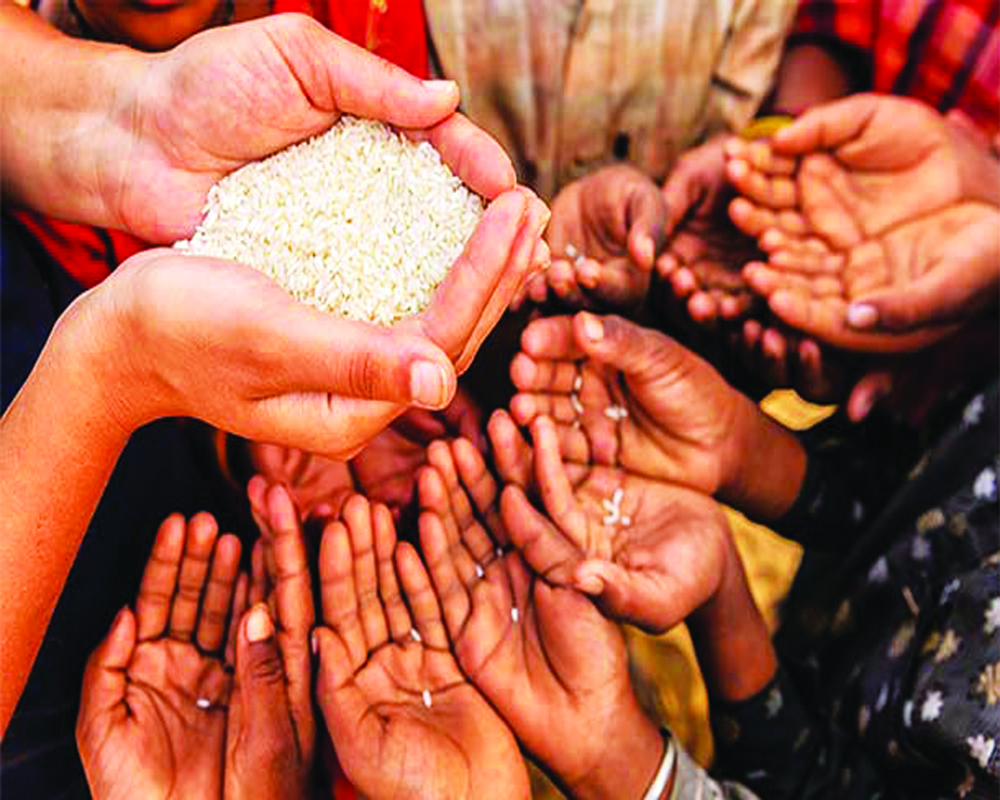India can encourage philanthropy by incentivising it on a tax and individual level and offering tax deductibility
Philanthropy is not a novel concept in India as Indians most often part with wealth in the name of faith, charity or nation-building. A 2020 Charities Aid Foundation report recounts that “the most popular causes for donation remain the same as previous years: Helping the poor (54 per cent), supporting religious organisations (51 per cent) and supporting children (49 per cent),” in India. Unfortunately, charity in our nation is largely either faith-based, or is a response to a natural disaster or relief effort like the current COVID-19 pandemic. However, it remains insufficient for addressing the longstanding social issues.
In this context, philanthropic capital from the private sector has become a lifeline for the development sector over the last few years. According to a 2021 Bain-Dasra Report, private-sector funding was about Rs 64,000 crore in 2020, which is almost 23 per cent more than the previous year. The money primarily comes from foreign donors, corporate entities, retail (or crowdfunding), high-net-worth individuals (HNWIs) and families. The report highlights that HNWI contributions account for a quarter of all funding, Corporate Social Responsibility (CSR) donations account for 28 per cent and retail investors or everyday charity account for another 28 per cent. The remaining 20 per cent comes from family philanthropy — the biggest source of growth — that accounts for nearly two-thirds of the increase in funding since 2019. With these numbers in place, it’s not surprising that non-profits in India have directed their energies into unlocking philanthropic capital coming from HNWIs and families. After all, the number of ultra-high-net-worth individuals (UHNWIs) in India will grow 73 per cent in the next five years. It is estimated that the number of UHNWIs will double by 2024. While India prides itself on being home to more than 200 billionaires, the country has also been in the news for topping the worldwide income gap indices.
So, where does philanthropy feature in the larger scheme of things? The easy answer would be that the growing wealth (of a few) in India should automatically translate into more charity. Unfortunately, the reality is not so simple. India still ranks very low on philanthropic giving in comparison to other countries. As per the ‘World Giving Index 2019’, “India was the least generous of the seven South Asian countries in the index, behind its neighbours Pakistan, Nepal and Sri Lanka.”
In India, particularly, the concept of giving is an altruistic and value-driven act, rather than an obligation or economically-incentivised. Interestingly, the developed world — particularly the US, has seen a rise in demand for a progressive tax regime by the HNWIs and UHNWIs. Walt Disney and Co heiress Abigail Disney, former BlackRock Inc. managing director Morris Pearl, and Danish-Iranian entrepreneur Djaffar Shalchi are petitioning for higher taxes on the rich to help pay for the billions in new Government programmes made necessary by the pandemic. Alternatively, in India, there has been a shortfall in the overall collection of taxes by the Indian Government.
Another effective method to increase charity is by incentivising it on a tax and individual level. For larger philanthropic donations, the Government can offer tax deductibility. For instance, in the face of the COVID crisis, the US Government increased their allowance for deductible donations of any individual’s annual gross income to 100 per cent from 60 per cent the previous year. Creating a national charity platform or offering major tax breaks for donations is an effective impetus for charity. Perhaps a crucial step would be Government-supported recognition and honour for citizens, incentivised charity, changing the culture and a progressive tax regime.
(The writer is founder and director, India Leaders for Social Sector. The views expressed are personal.)


























